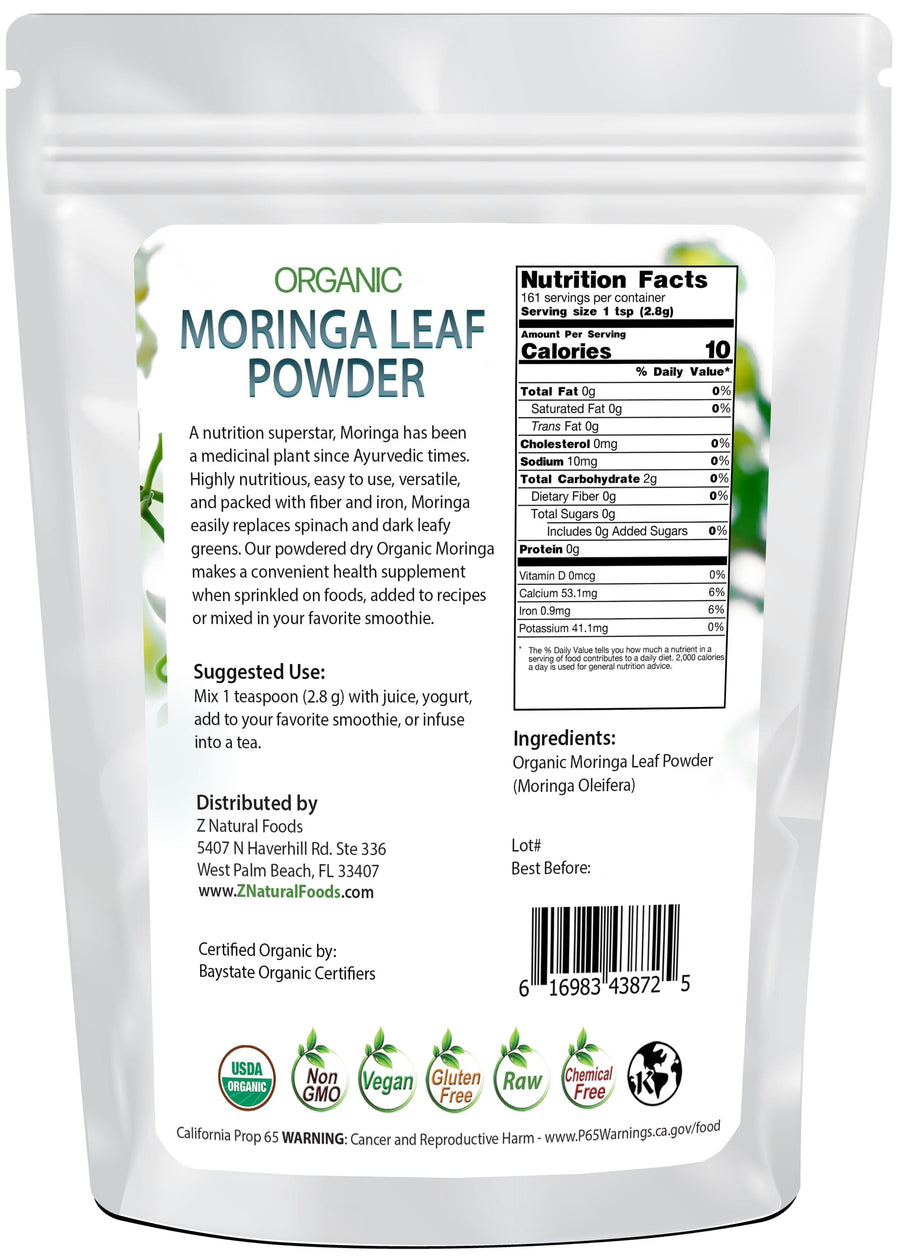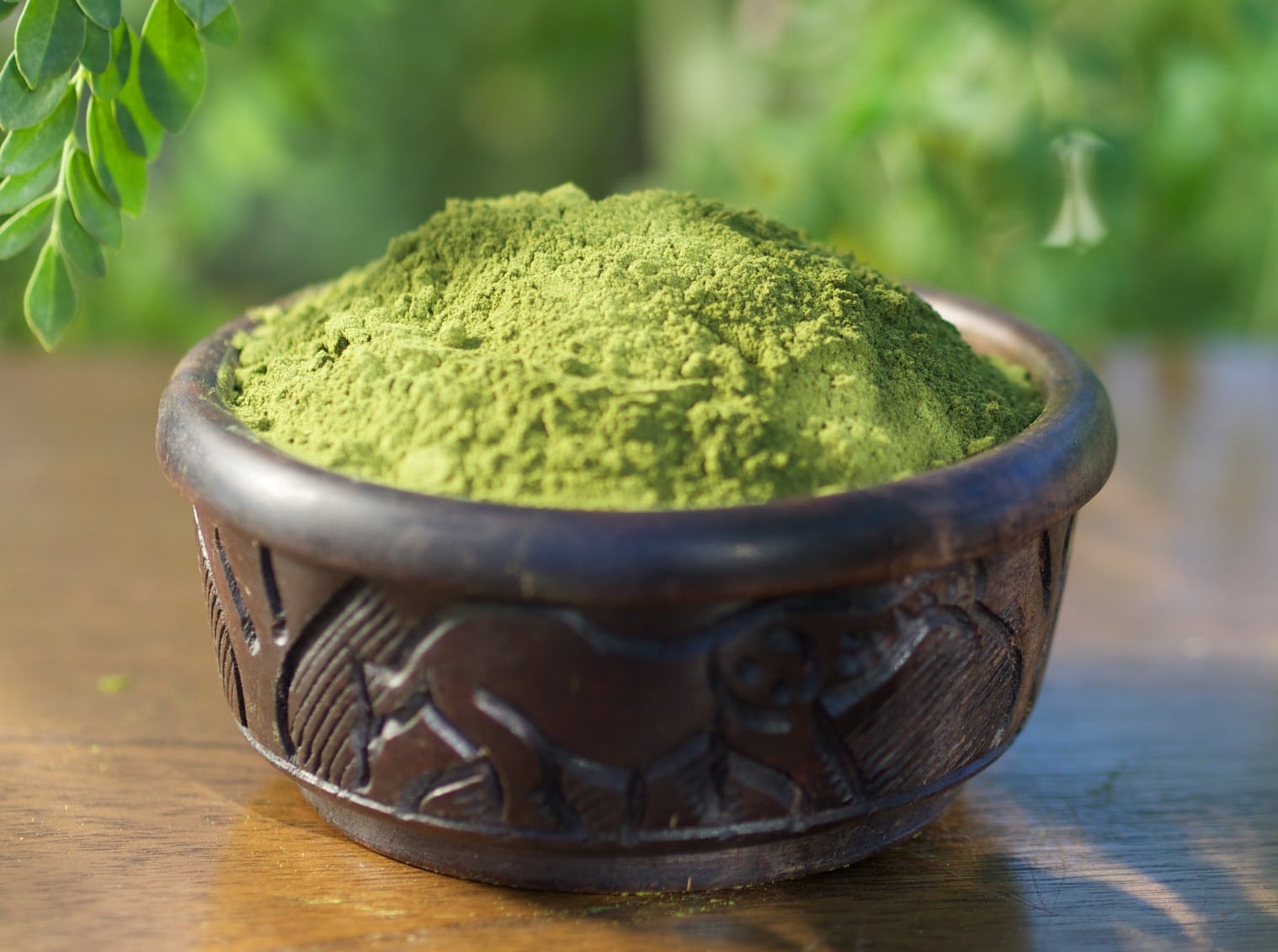Health Benefits of Moringa Powder
by Admin
Posted on 10-10-2023 02:04 PM

Many health benefits of moringa powder are due to its rich proteins, minerals, amino acids, antioxidants , and flavonoids. Moringa powder can be used to protect tissue (liver, kidneys, heart, and lungs), and to reduce pain. Other health benefits of moringa include:
antioxidant properties
antioxidants help protect cells against free radicals, which are produced by digesting
food
, smoking, and exposure to radiation.
 Antioxidants from plant-based sources such as moringa powder are considered best. Anti-inflammatory effects
approximately 1 million women each year are diagnosed with benign breast disease , putting them at a higher risk of developing breast cancer. Research shows these women may benefit from anti-inflammatory treatment.
Antioxidants from plant-based sources such as moringa powder are considered best. Anti-inflammatory effects
approximately 1 million women each year are diagnosed with benign breast disease , putting them at a higher risk of developing breast cancer. Research shows these women may benefit from anti-inflammatory treatment.
Moringa is an important food source in some parts of the world. The immature green pods (drumsticks) are prepared similarly to green beans, while the seeds are removed from more mature pods and cooked like peas or roasted like nuts. The leaves are cooked and used like spinach, and they are also dried and powdered for use as a condiment. Moringa is also available in supplements. Moringa leaves and seeds have most often been used by adults in powders or extracts, in doses of 6-10 grams by mouth daily. Speak with a healthcare provider to find out what dose might be best for a specific condition.
Research involving animals has suggested moringa seed oil may help heal skin wounds more quickly. One way it might do this is by reducing oxidative stress. Moringa seed oil may also have benefits for hair health , according to some. However, more studies are needed, especially those involving humans.
Modern medicine continues to confirm many of its nutritional and health benefits. Here are the top health benefits of moringa and creative ways to use it: 1. It's extremely nutritious “moringa leaves are one of the most nutrient-dense greens on the planet, packed with protein, essential amino acids, 27 vitamins and 46 antioxidants ,” says lisa curtis, founder and ceo of kuli kuli foods. That includes key nutrients like calcium , iron , b vitamins, potassium, magnesium and vitamin c. Overall, moringa is rich in macro- and micronutrients and other bioactive compounds which are vital for the normal functioning of the body and prevention of many diseases.
Boost Your Metabolism: 10 Ways to Do It
Moringa is extremely versatile, not only in its many properties but also in the variety of ways it can be taken to support your health. Here are a few ideas to get started:
traditional methods.
 For an easy traditional method, take ¼ to ½ teaspoon moringa powder with warm water, once or twice daily. Take the powder with a teaspoon of ghee for overall nutrition or with honey to boost metabolism. Mix it with warm milk and honey to help balance vata. To offset the heating quality, take with a spoonful of aloe vera. Make a lemon moringa latte. As a caffeine alternative, try making a lemon moringa latte with moringa powder.
For an easy traditional method, take ¼ to ½ teaspoon moringa powder with warm water, once or twice daily. Take the powder with a teaspoon of ghee for overall nutrition or with honey to boost metabolism. Mix it with warm milk and honey to help balance vata. To offset the heating quality, take with a spoonful of aloe vera. Make a lemon moringa latte. As a caffeine alternative, try making a lemon moringa latte with moringa powder.
MORINGA - Uses, Side Effects, and More
Just adding moringa powder to a smoothie won't make you instantly healthier, but it will give you a little boost of vitamins, minerals and fiber. The nutrients found in moringa are also found in more commonly eaten foods like fruits, vegetables, whole grains, nuts/seeds and animal proteins. It isn't necessary to consume moringa daily to reap the same benefits of those nutrients, and it's important to remember that no dietary supplement can take the place of eating a varied diet with adequate nutrient intake. If you do decide to add moringa to your daily intake, be sure to know what you're purchasing and how much you're consuming.
Although few human studies have evaluated moringa, those that did showed it to be well tolerated without any side effects reported. Some researchers have found that a high intake of moringa may cause an increase of iron in the blood, which can cause stomach problems and worsen hemochromatosis. It is not recommended to have more than 70 grams per day. Talk to your healthcare provider and pharmacist before taking any dietary or herbal supplements.